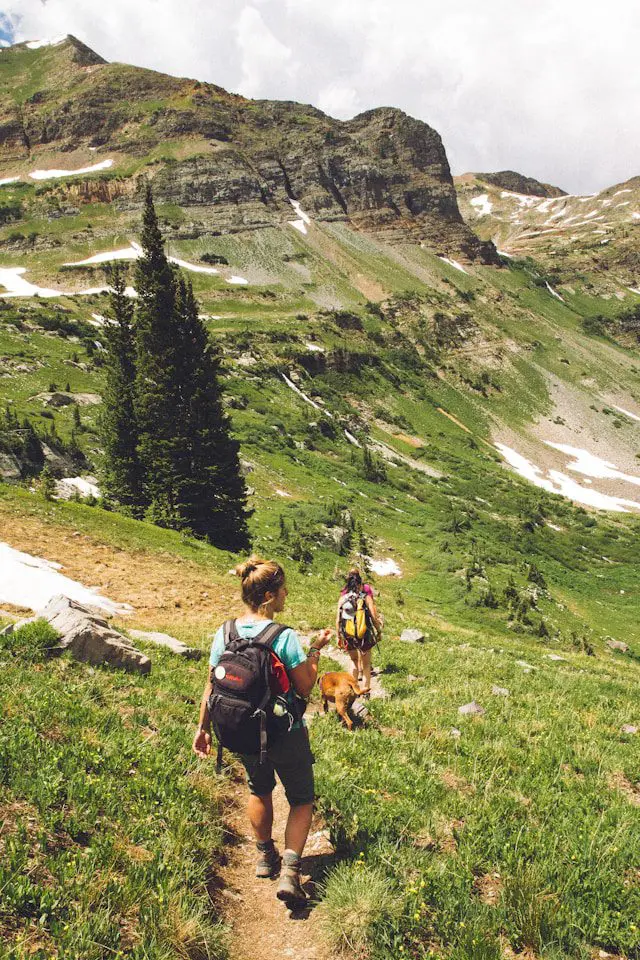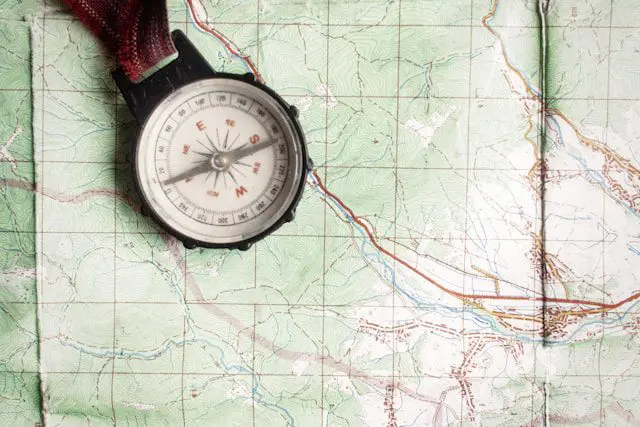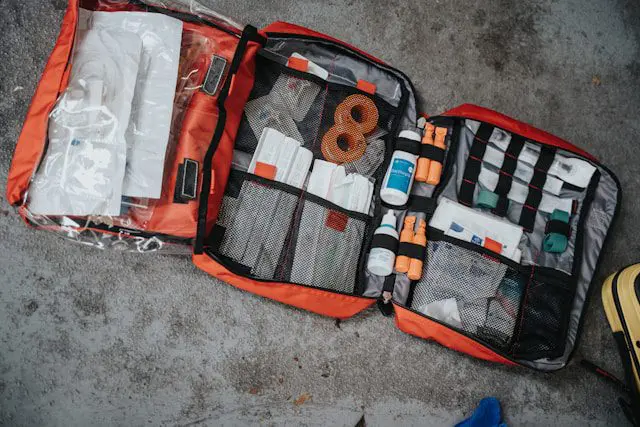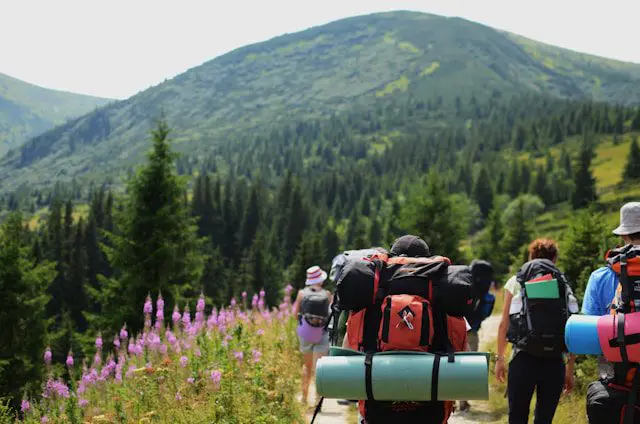Hiking is an incredible way to explore the great outdoors and immerse yourself in nature. Whether you’re trekking through local trails or planning a multi-day backcountry expedition, being prepared is key to enjoying your adventure safely and comfortably. If you’re new to hiking, knowing what to bring can be overwhelming. Here’s a guide to the must-have hiking gear for beginners, crafted with the novice trekker in mind.

1. Appropriate Footwear
Your choice of footwear can make or break your hiking experience. For most beginner trails, a sturdy pair of hiking boots is essential. They provide the necessary ankle support, cushioning, and grip for varied terrains. Make sure to break them in before your hike to avoid blisters.
Step up your hiking game with the Salomon X Ultra 4 Mid GORE-TEX hiking boot, a top pick for beginners. These boots are designed to handle any terrain, featuring an advanced chassis for stability and a grippy outsole for secure footing, even when it is slippery. Waterproof and exceptionally comfortable, they offer the support needed to confidently navigate new trails. Ideal for those who want reliable footwear that won’t let them down, these boots ensure your first steps into the hiking world are as enjoyable as possible.
2. Weather-Appropriate Clothing
The weather can change unexpectedly, especially in mountainous areas. Dress in layers so you can easily adjust to temperature changes throughout your hike. Include moisture-wicking fabrics to keep sweat away from your skin, a warm layer, and a waterproof or windproof jacket.
As a beginner hiker, the Marmot Minimalist Jacket is an excellent choice for you because it’s straightforward, versatile, and reliable. Its GORE-TEX Paclite fabric will keep you dry and protected from the elements without overwhelming you with bulk, making it easy to carry and pack. The jacket’s simplicity, with features like an adjustable hood and secure zippered pockets, makes it user-friendly as you start your hiking journey. Plus, its durable construction and leak-proof design give you peace of mind, so you can focus on enjoying your hike without worrying about the weather.
3. Backpack
A comfortable, durable backpack is crucial for carrying all your gear. Opt for one with multiple compartments to help organize your essentials and ensure it has adjustable straps for a secure fit. A daypack around 20-30 liters is usually sufficient for short hikes.
The Gregory Zulu 30 Pack is perfect for beginner hikers, offering a customizable fit with its adjustable torso and a supportive, flexible FreeFloat hipbelt suspension system that moves with your body. The 3D hipbelt design provides seamless padding, making it easier to carry heavy loads comfortably. The pack’s full-length tensioned mesh allows for excellent ventilation, keeping you cool on the trail. This combination of comfort, support, and breathability makes the Zulu 30 an ideal choice for those new to hiking.
4. Navigation Tools

Even on well-marked trails, having a map and compass is vital. GPS devices are handy, but they can fail or run out of battery. Learn the basics of map reading and compass navigation to keep your journey on track. The Bureau of Land Management offers a basic map reading course for free online that we recommend.
The Suunto MC-2 Compass is an essential tool for beginner hikers. It helps you find directions by pointing to magnetic north and can be aligned with distant landmarks using its sighting mirror, ensuring you stay on the correct path. The compass features adjustable declination, allowing you to correct for geographical differences between magnetic and true north, ensuring accurate map reading. It also has a magnifying lens for easier map viewing and luminous markings for low-light conditions. This makes the Suunto MC-2 a reliable companion that boosts your confidence and safety on the trails.
5. Water and a Way to Purify It
Staying hydrated is non-negotiable on a hike. Carry enough water for your journey, usually about half a liter per hour of moderate hiking in moderate temperatures. Additionally, bring a water filter or purification tablets in case you need to refill from a natural source.
The LifeStraw Go Water Filter Bottle incorporates a 2-stage filtration process that removes bacteria, protozoa, and reduces chemicals. Fill up from any freshwater source and drink with peace of mind, making it an essential tool for every hiker’s kit.
6. Food: More Than You Think You Need
Pack energy-dense, quick and easy snacks like nuts, dried fruit, and granola bars. Always bring more than you think you’ll need in case your hike takes longer than expected.
7. Safety Items: First Aid Kit and More

A basic first aid kit for survival should include items like bandages, antiseptic, blister treatment, and any personal medications. Also, pack a whistle and a headlamp or flashlight with extra batteries for emergencies.
8. Sun Protection
Protect yourself from sunburn and heat exhaustion by wearing a long sleeves and pants, a hat, sunglasses, and sunscreen, even on cloudy days. UV rays can be deceptively strong, especially at higher altitudes.
9. Knife or Multi-tool
A knife or multi-tool can be incredibly handy for gear repair, food preparation, or first aid. It’s a lightweight addition that can provide significant practical benefits.
Nearly everyone I knew in the Army carried a Leatherman Multi-Tool, and they were used often. The Wave Plus model combines 18 different tools into one compact device, including pliers, scissors, a variety of blades, and screwdrivers. This multi-tool is particularly useful for making quick repairs on gear, preparing snacks, or handling emergency situations while on the trail.
10. Emergency Shelter
For longer hikes, or in areas where weather can change quickly, carrying an emergency shelter (like a lightweight tent, bivy sack, or space blanket) can be a lifesaver if you’re stranded or injured. In the Army, the bivy sack was a more important piece of gear than the sleeping bag. Learn more about the bivy and how to use it.
The AquaQuest Pharaoh Bivy Sack is an excellent choice for beginner hikers who want to ensure they’re prepared for unexpected overnight stays or sudden weather changes. This lightweight and compact bivy sack is waterproof, breathable, is easy to set up, and packs down small into your backpack. The durable material and reinforced seams provide reliable protection from wind and rain, ensuring you stay dry and comfortable.
Conclusion

Remember, every hike is an opportunity to connect with nature, test your limits, and learn new skills. With this list of must-have hiking gear for beginners, you’re ready to hit the trails with confidence and enjoy all the beauty and challenges they have to offer.
Equipping yourself properly not only ensures your safety but also enhances your overall outdoor experience. So gear up, plan your route, and step into the freedom and adventure of hiking — your gateway to experiencing the beauty of the natural world. With Bananomad by your side, every step is a step towards a healthier, more adventurous life. Embrace the journey!
Loved this article or have more questions about your hiking gear? Drop a comment below! Don’t forget to subscribe to the Gorilla Gazette for more helpful tips and updates on all things outdoors. Join our community and start your adventure with confidence today!
More from Bananomad
- Discover 10 fun facts about hydration that highlight the importance of drinking water. Learn how hydration benefits your brain, metabolism, mood, and more.
- Learn to create a DIY homemade car emergency kit with 10 items in our easy guide. Gather essential tips and tricks for safety on the road.
- Discover effective strategies on how to quit coffee and improve your health. Our comprehensive guide offers step-by-step advice, alternatives, and expert tips.


Leave a Reply